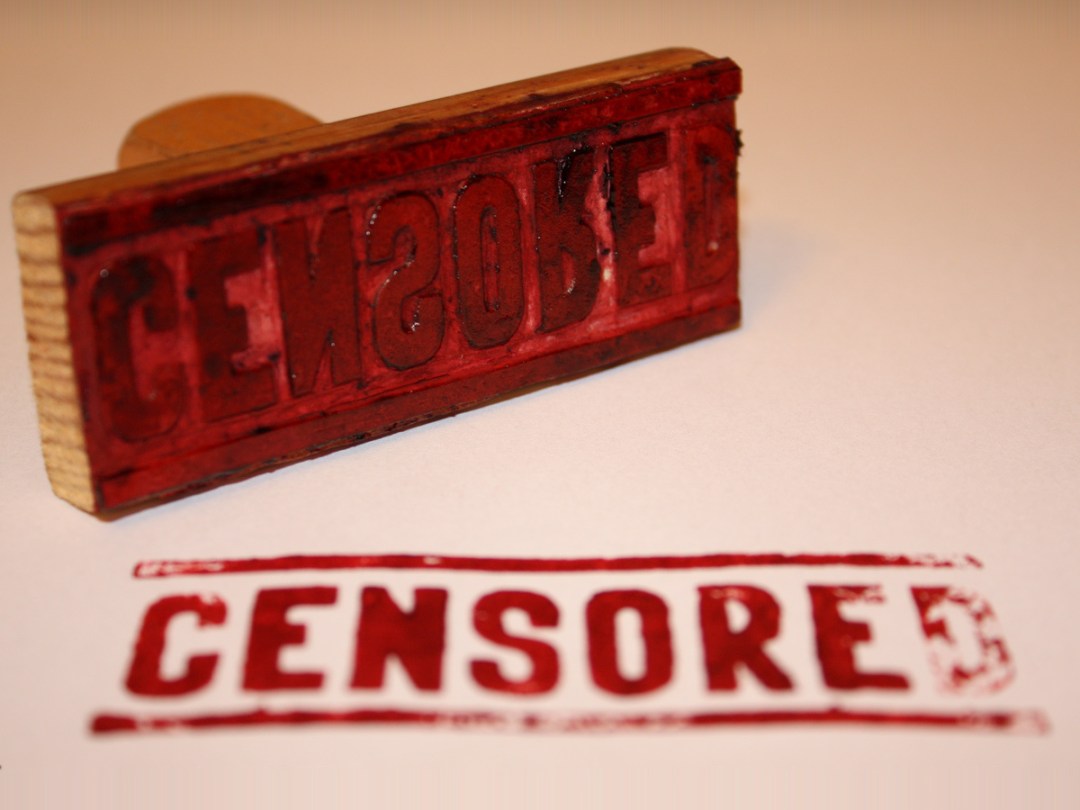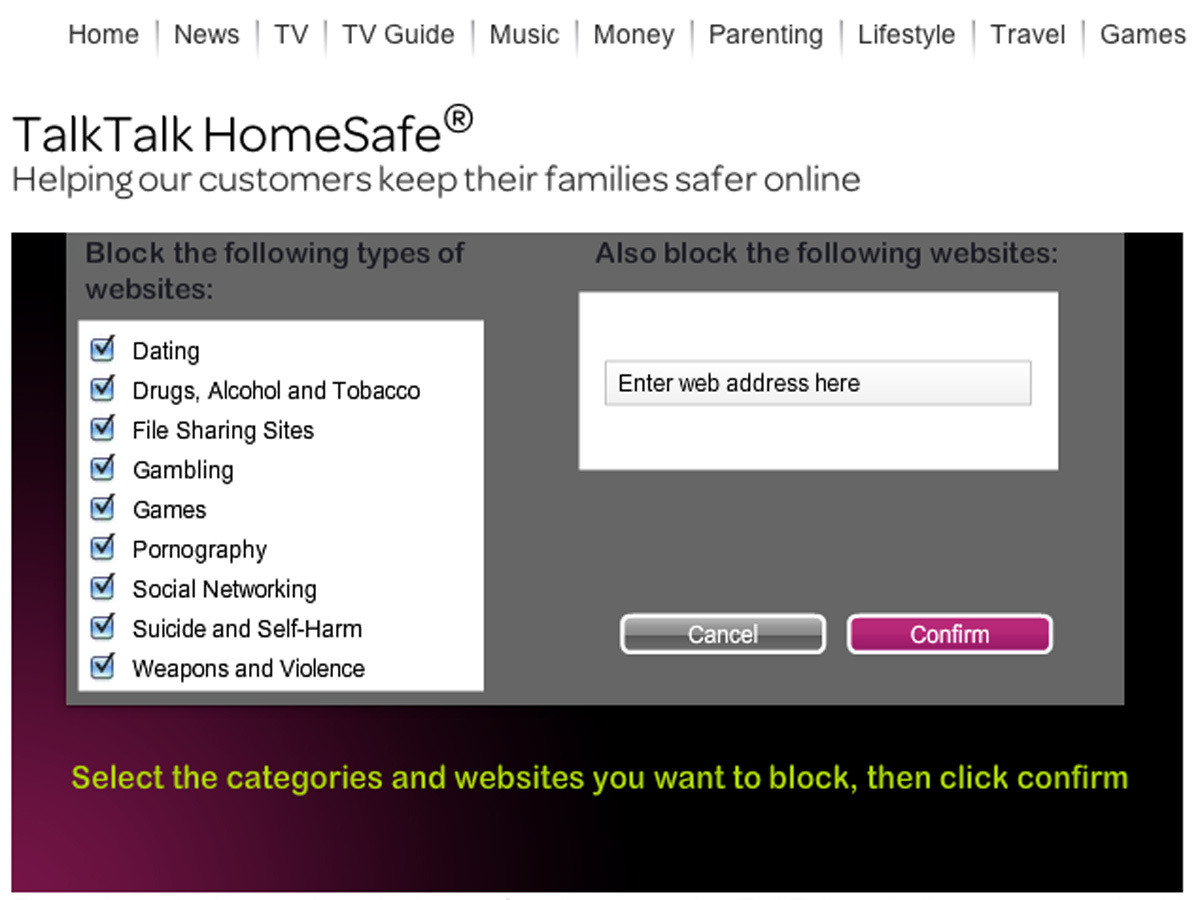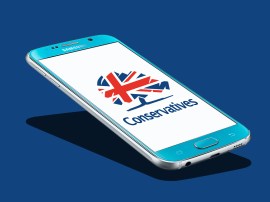Opinion: Why we should give a xxxx about internet censorship
The UK is sleepwalking into a future where the chosen few's moral centre and donor links will decide what is and isn't acceptable online, says Craig Grannell

November 14 saw Sky become the second major UK ISP (after TalkTalk) to roll out network-level internet content filtering.
Customers will be offered three filtering levels: ‘PG’, ’13 and over’ and ‘adults only’. Sky has stated filters can be activated from outside of the home and at appropriate times, and existing customers must turn them on manually; eventually, all customers will be prompted to make a decision on content filtering, but nothing will be forced – yet.
That isn’t quite the way the British government wants it. Under the guise of protecting children from the horrors of the internet, the Prime Minister and various MPs have spent considerable time since the 2010 General Election setting out plans to dramatically change the landscape of the internet in the UK, and few seem aware of the ramifications. The aim, broadly speaking, is a much more restricted internet by default, with ISPs forced to filter; only by manually opting out would you get the ‘full’ internet.
The plans are being driven by skilful politics: change via drip-feeding, the use of emotionally charged language, and seemingly intentionally misleading people through a mix of impossible promises, conflation of separate issues, and burying underlying ideology.
Feature creep

On the surface, the arguments seem reasonable: protect children from content they shouldn’t see; ensure only people who are suitable to see certain content have access to it. But dig deeper, and things begin to unravel. Search engines are accused of not doing anything to stop children accessing illegal pornographic content when they openly work with the Internet Watch Foundation, which itself has admitted that such content has been virtually eradicated from British internet access. Filters are presented as a magic bullet, despite algorithmic blocking not catching everything it should and yet blocking sites it shouldn’t.
The media and MPs conflate separate issues, sewing confusion. ‘Child pornography’ and ‘pornography’ are rolled into one, despite the former being child abuse (and already – rightly – blocked) and the other often being perfectly legal. Strokes are drawn very broadly, government documents talking about default blocks on “an internet access service that contains harmful and offensive materials from which persons under the age of 18 are protected”. So-called victories are oddly framed, congratulating politicians for convincing companies for doing what they were already doing, using hype to bury what are in fact empty gestures.
It takes little imagination to see how this could all lead to feature-creep, fashioning British internet specifically to be acceptable to the government and its supporters. Free from difficult content and yet protective of the rights of big businesses, this brave new online world would seek to normalise labelling anything as ‘other’ that’s deemed unacceptable under the watchful eye and moral compass of our elected guardians.
It’s easy to sense a hint of tin-foil hat about such an opinion, but look around and various disparate facts coalesce into a distasteful whole: disproportionate prosecutions surrounding online activity (such as the Twitter Joke Trial); government cuts to the Child Exploitation Online Protection Centre, despite arguments that protecting children online is of the utmost importance; relying on ISPs to deal with filtering, so they take the blame during any backlash; demands for specificity being thrown under the bus, with MPs refusing to state which sites and what specific content should be blocked; ‘adult content’ being defined very generally by existing filters (that MPs have verbally supported), extending far beyond ‘pornography’ to categories such as ‘violent material’, ‘eating disorder websites’, ‘alcohol’, ‘web forums’ and ‘esoteric material’; MP inquiries being sponsored by Christian organisations, thereby suggesting policy is being driven in part by ideology and puritanical religious morality rather than science and evidence.
Slippery slopes

By ignoring the realities of technology, often wilfully, dismissing the problems of enacting default censorship (beyond what’s illegal) on the internet, and hiding at least some truths regarding intentions, MPs and the media are doing the public a grave disservice. And with the Conservative Party busy whitewashing its own history from the internet, it’s clear the senior coalition partners at least live in a world where the internet is something to manipulate and bring under control, rather than encourage to flourish as a bastion of freedom.
The problem is that censorship plans are morally tricky to oppose; argue against them and it’s all too easy to be presented as some evil caricature, out to steal the souls of Britain’s children, forcing their eyes through a porn grinder. But we need a much more grown-up discussion about the future of the British internet, free from tabloid shock headlines and politicians trying to score easy points with soundbites that please conservative Middle England voters.
We need people who understand technology to offer better solutions and rigorously argue in favour of them, to demand a vanilla internet by default for everyone, unless a subscriber specifically chooses otherwise. We must continue to fight reprehensible illegal content, of course, but also battle just as hard to ensure a level playing field for legal content of all types – from web forums to sexual health websites – is the norm, not something you must opt into, assuming you know that’s even possible.
Anything else isn’t so much a slippery slope towards an unrecognisable future for British web access as plummeting into an online abyss that until recently the UK had sternly criticised other countries for falling into.



